
You are reading:

You are reading:
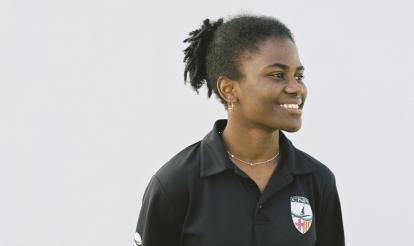
Eight years after arriving in Spain, Shara found a home at Casa de Recés, a residential and socio-educational centre for young women in vulnerable situations. From this space of “care, safety and trust”, managed by the Fundación de la Esperanza, which was set up by the ”la Caixa” Foundation, Shara, now 19 years old, has begun to build a project for the future: to study to become a nurse and to enjoy team sports by playing rugby.
Shara arrived at the centre one summer night. She had to ask for help to take that step because she did not feel up to facing the process of adapting to the new place, the new companions... But this time it was different. She noticed immediately. “After dinner, we all went to the courtyard and told each other our stories.” It was this sharing with the other girls that helped her most, she admits. For the first time she felt that she was not alone, that she had friends. She had found a place where she felt supported and not judged, a home: that very fundamental place from which she could build a life.
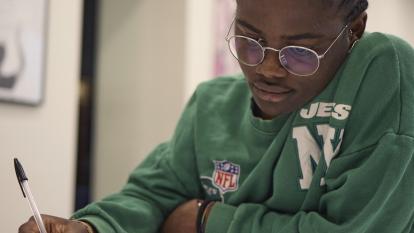
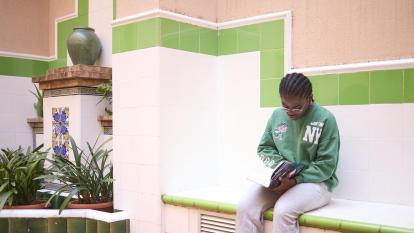
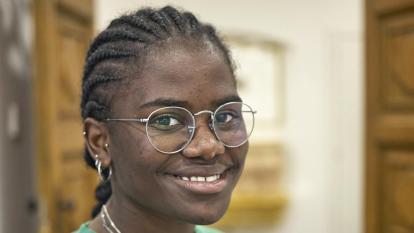
Shara tells this story through the questions of Maria, her reference educator. When she answers, she leans her body over the table, as if trying to shorten the distance between them and at the same time hide her face and chest. And the contrast between her shy, almost childlike manner and the solid physique of this young, 19-year-old rugby player evokes tenderness in the observer. The voice is mellow and deep, and some of the inflections reveal the seriousness of people who have had to mature at an early age.
The Casa de Recés is a residential centre that takes in women between the ages of 18 and 35 who are in a particularly vulnerable situation and provides them with socio-educational support. It is an institution with a long history, which is reflected in its building in the centre of Barcelona. It was founded in 1744 by the Congregación de la Esperanza and, when the latter merged with ”la Caixa” in 1923, became part of its Obra Social. Since 2013, it has been run by the Fundación de la Esperanza and in its two centuries of existence has welcomed more than 2,000 women. “We currently receive more than 70 women a year and our aim is not only to provide them with shelter,” explains Maria, “but also to offer them tools to facilitate the process of personal autonomy. Each girl sets her own emotional, professional, economic, etc. goals and begins a process of emancipation in which we accompany her.” In this space of “care, safety and confidence”, Shara has also been able to start planning her future. She is studying to become a nurse. And she has discovered rugby.
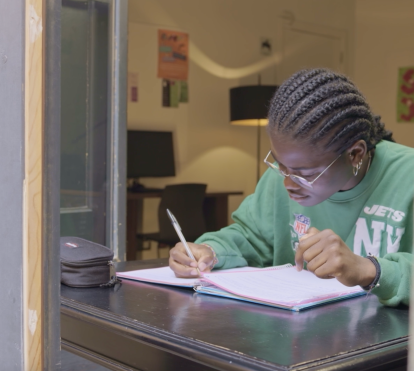
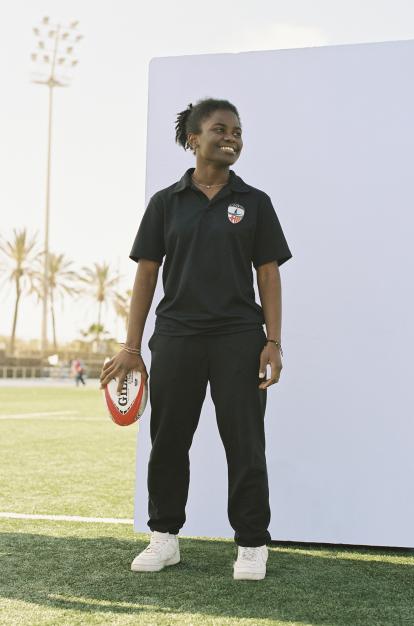
In 2023, Shara was crowned champion of Catalonia with her team, CN Poble Nou, and is playing for promotion to the national league. She had previously played basketball and practiced athletics, but until now had found it difficult to integrate. In rugby, however, she discovered the same climate of support and camaraderie that she had encountered at the Casa de Recés. This is reflected in a custom that has a name: “In rugby, the rivalry stays on the pitch. At the end of the match, the home team brings food and drink and spends some time with the visiting team. That’s the third half,” explains Shara.
At last, the previously disjointed pieces were beginning to fit together. Shara’s daily routine is now a whirlwind of activity: she studies in the mornings, and after returning home for lunch –she says, referring to the Casa de Recés – she goes to her nursing internship and later to training. And although there is more movement in the centre during the school year, with girls leaving and new ones arriving, they all continue to look for and find the time to share confidences in the courtyard. “Everything has its time,” she says matter-of-factly.
Maria admits that accompanying Shara through this process is “inspiring and motivating”, and in response to Shara’s protests she adds, “Showing yourself the way you are now reveals a lot of courage.” How does she see herself in the future? Sharing a flat with friends and working as a nurse. “And, if age allows, playing rugby”, she adds, with that lack of awareness of her extraordinary youth that is so characteristic of her 19 years.
Shara’s experience is part of the Life stories documentary project. It consists of 14 accounts of overcoming adversity that give a voice to people at risk of exclusion who share what they’ve learned to raise public awareness.